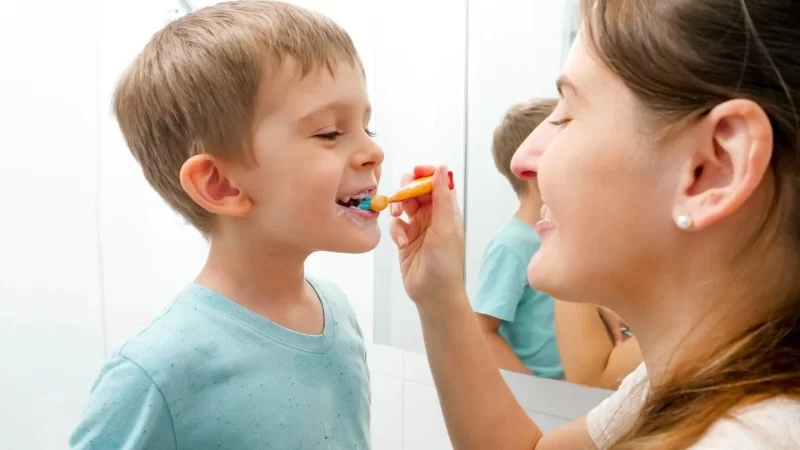
How to Keep Good Oral Hygiene Every Day
Maintaining good oral hygiene is one of the most effective ways to protect your teeth, gums, and overall health. Many people think brushing alone is enough, but in reality, keeping your mouth healthy involves a combination of daily habits, professional care, and mindful choices. In the United States, poor oral health has been linked not only to cavities and gum disease but also to conditions like heart disease and diabetes. This shows that taking care of your smile is about more than appearance—it’s a step toward long-term wellness.
The Foundation of Daily Oral Hygiene
1. Brushing Technique Matters
Brushing your teeth twice a day is essential, but the technique you use plays a big role. Dentists recommend brushing for at least two minutes using gentle circular motions. Hard scrubbing can damage enamel and irritate gums. Using a fluoride toothpaste helps strengthen enamel, preventing decay. A real-life example comes from a survey in New York City, where 40% of adults admitted they brushed for less than one minute—a habit strongly linked to higher cavity rates.
2. The Importance of Flossing
Flossing removes food particles and plaque from areas your toothbrush cannot reach. Without flossing, bacteria thrive between teeth, leading to gum disease. In one well-documented case, a college student experienced swollen gums and chronic bad breath until he introduced daily flossing. Within weeks, his gum health improved significantly. This simple yet often neglected step can be life-changing for dental health.
3. Mouthwash for Extra Protection
Mouthwash is not a replacement for brushing or flossing, but it adds an extra layer of defense. Antibacterial rinses reduce plaque and prevent gingivitis, while fluoride rinses help strengthen enamel. Dentists across the U.S. often recommend mouthwash for patients prone to gum sensitivity or who struggle with flossing consistently.
Lifestyle Habits That Influence Oral Health
1. Diet and Nutrition
What you eat directly impacts your oral hygiene. Sugary foods and sodas feed bacteria that produce acids, wearing down enamel. On the other hand, foods rich in calcium, like yogurt and leafy greens, help strengthen teeth. A well-known example is professional athletes who consume sports drinks regularly—many end up with dental erosion due to the high sugar and acid levels in those beverages. Moderating sugar intake and staying hydrated with water is key for lasting oral health.
2. Avoiding Harmful Habits
Smoking, chewing tobacco, and excessive alcohol use can severely damage oral tissues. Smoking alone increases the risk of gum disease and oral cancer. In a study conducted in California, smokers were found to lose teeth at twice the rate of non-smokers. Quitting these habits not only benefits your teeth but also your overall health and longevity.
3. The Role of Stress and Sleep
Few people realize that stress affects oral health. Teeth grinding, known as bruxism, is often linked to anxiety and poor sleep. Over time, grinding can wear down enamel and cause jaw pain. Dentists recommend night guards for severe cases, but stress management through exercise or meditation can also reduce grinding naturally.
The Value of Professional Dental Care
1. Regular Checkups and Cleanings
Even with excellent daily habits, professional dental visits are vital. Dentists can detect early signs of cavities, gum disease, or oral cancer that may not be visible at home. In the U.S., the American Dental Association recommends seeing a dentist every six months. Many patients who skip checkups often face higher costs later due to advanced dental problems that could have been prevented.
2. Preventive Treatments
Sealants and fluoride treatments are common preventive measures, especially for children. Sealants protect molars from cavities, while fluoride strengthens enamel. Families who invest in these treatments often save money in the long run by avoiding costly fillings or crowns. Clinics like Family Dentistry Online offer such preventive services, making it easier for families to stay ahead of dental issues.
Real Stories That Show the Impact of Oral Hygiene
One notable story involves a young professional in Texas who neglected flossing and dental visits during his busy work schedule. Within a few years, he developed severe gum disease that required surgery. On the other hand, a grandmother in Florida who committed to daily brushing, flossing, and regular cleanings kept all her natural teeth well into her eighties. These real-life cases highlight how habits today shape the condition of your smile tomorrow.
Practical Steps to Start Today
To keep good oral hygiene, focus on building consistent daily routines: brush with fluoride toothpaste, floss once a day, use mouthwash, and eat a balanced diet. Schedule dental checkups twice a year and avoid harmful habits like smoking. With these steps, you’ll not only protect your teeth but also improve your overall health and confidence. For tailored care and trusted dental services, Family Dentistry Online provides resources and professional support to help you maintain a healthy smile for life.







 Ukani Dental4.0 (95 review)
Ukani Dental4.0 (95 review) Light Dental Studios of University Place4.0 (279 review)
Light Dental Studios of University Place4.0 (279 review) Cramer Dental4.0 (286 review)
Cramer Dental4.0 (286 review) South Pasadena Dental Group - General Dentist & Cosmetic Dentistry South Pasdena4.0 (76 review)
South Pasadena Dental Group - General Dentist & Cosmetic Dentistry South Pasdena4.0 (76 review) SOUTHWEST SMILES LAS CRUCES5.0 (1 review)
SOUTHWEST SMILES LAS CRUCES5.0 (1 review) Orthodontic Associates of Collegeville, PC Adam J. Weiss DMD & Sarah S. Pavlow DMD5.0 (46 review)
Orthodontic Associates of Collegeville, PC Adam J. Weiss DMD & Sarah S. Pavlow DMD5.0 (46 review) The Importance of Oral Health Education During Pregnancy for a Healthy Pregnancy
The Importance of Oral Health Education During Pregnancy for a Healthy Pregnancy Best Tips for Brushing Your Teeth Properly for Healthy Gums: Essential Techniques for Oral Health
Best Tips for Brushing Your Teeth Properly for Healthy Gums: Essential Techniques for Oral Health Why Skipping Dental Checkups Can Lead to Bigger Oral Health Problems
Why Skipping Dental Checkups Can Lead to Bigger Oral Health Problems Advantages of Porcelain Dental Restorations
Advantages of Porcelain Dental Restorations How Can Diabetes Cause Tooth and Gum Problems? Preventing and Managing Oral Health Issues
How Can Diabetes Cause Tooth and Gum Problems? Preventing and Managing Oral Health Issues Healthy Habits for Promoting Good Oral Health and Hygiene: Tips for a Healthy Smile
Healthy Habits for Promoting Good Oral Health and Hygiene: Tips for a Healthy Smile